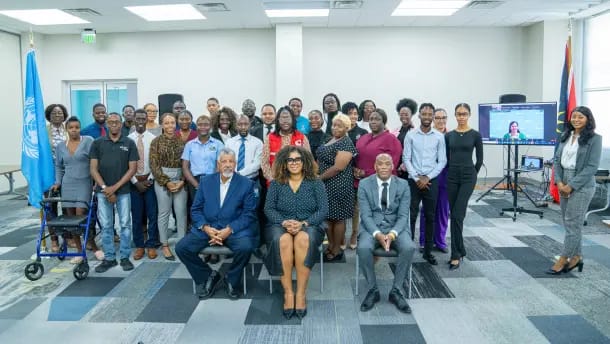In 2024, the UNESCO Office for the Caribbean partnered with the Ministry of Education and the Antigua and Barbuda National Commission for UNESCO to implement three key initiatives. These efforts focused on empowering youth organizations and promoting digital inclusion by upskilling participants—including persons with disabilities—in digital skills and media and information literacy (MIL) competencies.
The initiatives included:
1. A Digital Skills Webinar with the School for the Deaf, to empower educators to effectively use essential digital tools, enabling them to support students—especially those with disabilities—in navigating the digital world and ensuring greater inclusivity in education.
2. An X Spaces Discussion held in partnership with the Ministry of Education and guided by questions from the UN Youth Advisory Group, to address critical topics such as online safety, privacy, and digital well-being, equipping young people with the knowledge and confidence to protect themselves and thrive in today’s digital environment.
3. A Two-Day Hybrid Workshop to bring together youth organizations focused on developing key competencies in resilience against misinformation, digital mental health, and organizational branding and communication, and providing participants with the tools to navigate and lead effectively and responsibly in the digital age.
Through these initiatives, 338 stakeholders, 46 youth organizations, and 3 organizations representing persons with disabilities were engaged and empowered with essential skills for building a connected and resilient Caribbean. The sessions drew a diverse mix of local and international participants, including representatives from several UN agencies, funds and programs, government ministries, and tertiary institutions on the island.
The Youth, Media and Information Literacy Engagements Report provides a comprehensive summary of these initiatives carried out in Antigua and Barbuda. It serves both as a case study of UNESCO’s work in media and information literacy within a Small Island Developing States (SIDS) context, and as a valuable resource for youth stakeholder partners seeking to strengthen their engagement in digital literacy and inclusion.


